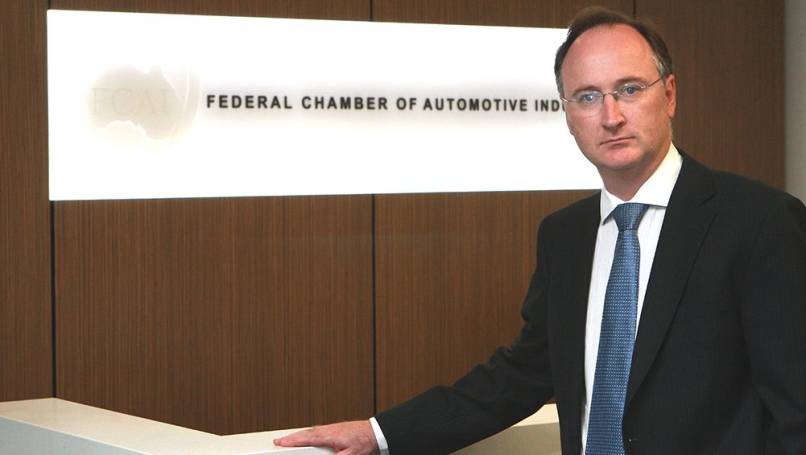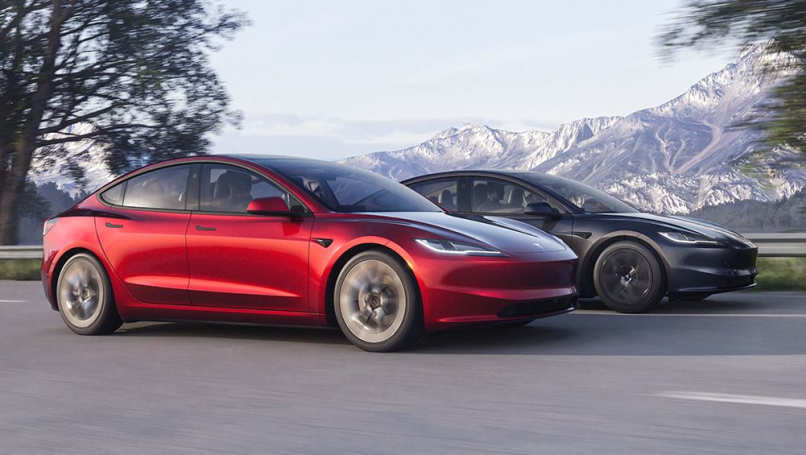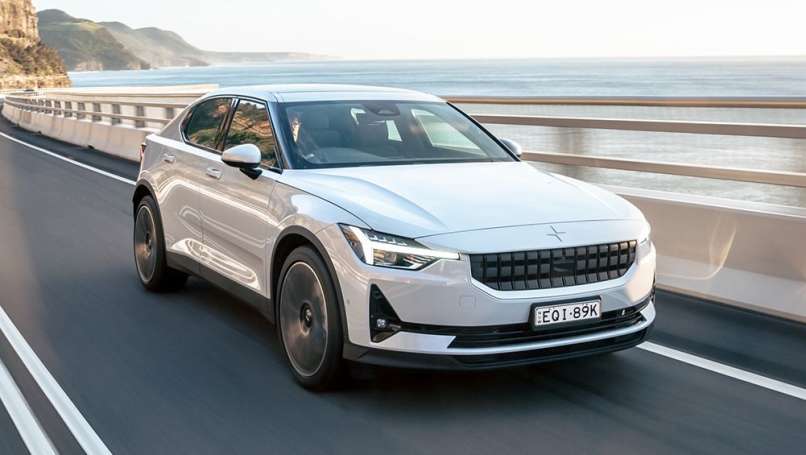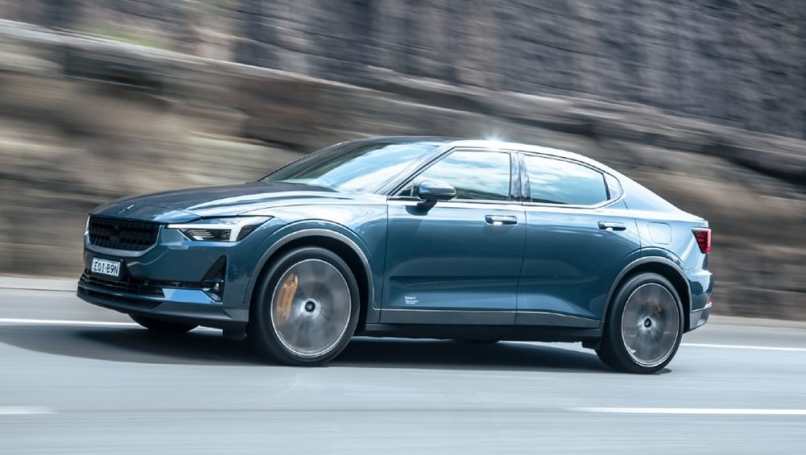An EV future is “inevitable” for Australia but that won’t stop local c
The head of the Federal Chamber of Automotive Industries (FCAI) has admitted a local market dominated by electric vehicles is “inevitable” despite strong opposition to the government’s proposal to promote EVs and cut emissions.
FCAI Chief Executive Tony Weber spoke to CarsGuide after several tumultuous weeks which included the FCAI publicly labelling EV sales as ‘plateaued’ and promoting utes and large SUV sales, resulting in Tesla and Polestar quitting the industry body.
The government’s proposal to introduce the New Vehicle Efficiency Standard (NVES) has divided the car industry, with sides being taken in the fight between the internal-combustion engine and an electric future.
Read more about
Tesla and Polestar both took swipes at the peak body, claiming the organisation had made “demonstrably false” claims around the increase in new-vehicle costs and made other misleading or deceptive statements that denigrated EVs.
Polestar Australia CEO Samantha Johnson wrote to the FCAI saying: “The brand can not in good faith continue to allow its membership fees to fund a campaign designed to deliberately slow the car industry’s contribution to Australia’s emissions reduction potential.”
However, Weber has dismissed these criticisms, suggesting the two electric car makers were in a position to benefit more than most other FCAI member brands with the government’s stricter NVES proposal, rather than the FCAI’s counter.


“Well, I think brands make commercial decisions,” Weber told CarsGuide.
“What is the government trying to do here, and what are governments around the world doing? They’re trying to regulate the market. How do you regulate markets? You distort pricing. So, clearly some brands are a commercial advantage under these circumstances when markets are distorted. Other brands are a commercial disadvantage. We have to understand it within that framework.”
The loss of Tesla and Polestar, as well as Volkswagen Group Australia’s decision to quit the FCAI’s Policy Advisory Committee, is an obvious sign of how deep the split is within the local industry as car makers pick sides in the debate. Asked if this public split was good for the industry, as it no longer represented all brands available in Australia, Weber made it clear that the board is driving the agenda.
The FCAI board is currently chaired by Vinesh Bhindi from Mazda and Toyota’s Matthew Callachor and Mitsubishi’s Shaun Westcott are Deputy Chairs, while there are representatives from Honda, Ford, Hyundai, Nissan, Stellantis and Inchcape Australia (Subaru, Citroen and Peugeot).


“We’re a broad church,” he said. “Yeah, there’s no doubt about that, and that’s why we have a constitution that actually sets out the fact that it is ultimately the decision of the board. So all the decisions we’ve made and our response to the government through the consultation impact analysis response has been done through the board.
“At the end of the day we have a responsibility here to consumers,” Weber continued. “Clearly as we’ve seen by the strong growth in EV sales in recent years, the movement to an EV future, which is inevitable and that’s why we’ve wanted a CO2 standard for so long, because we believe it is inevitable.
“It’s a question of the speed, and a question of the trajectory of this thing. Sure, some manufacturers are there, quickly. It’s obviously easier, for example, at the premium end of the market, I understand this. But we need to think about all consumers, and what it does, especially at the volume end, which is the vast proportion of our market, it’s about 88 per cent, we need to think about price points and the availability of the product.”
According to Weber, the FCAI’s argument is that the government’s proposal is too much, too soon and that will drive up prices of all vehicles and leave customers driving older cars. That’s why the FCAI’s submission to the government calls for higher CO2 targets and a possible push back on when this new standard will be enforced.


“We want a standard,” Weber insisted. “Do you know of another industry association in this country or anywhere in the world who’s put a voluntary standard upon themselves? We want this. We want it. Because we want to bring the best technology. Australia is an advanced market. [The industry] over decades has brought the best technology to Australia. We want to do that, but at the same time you’ve got to understand the implications of the policy because if you get it wrong, you have the absolute paradox outcome.”
However, the ultimate difference between the FCAI’s proposed cuts and the government’s end up at 26g/km for passenger vehicles and 50g/km for light-commercial vehicles (which includes utes). That is a significant percentage increase in emissions, especially when multiplied across Australia’s more than one million new cars sold every year.
“It’s not like we’re saying, ‘Oh, we don’t want it’, or ,’just lay off it’, these are a combination of substantial fines and really aggressive targets,” Weber said. “So it’s not like we’re saying, ‘Oh, no, no, no, we’ll pull back.’ We’re saying, ‘Ok, yeah, we’re up for the challenge’. And listen, it’s going to be bloody difficult for a lot of our members.
“It’s not going to be difficult for Polestar. It’s not going to be difficult for Tesla because they’re at zero. But for a lot of our members, it will be difficult. So that’s the point. It’s getting the balancing act and as I said before, it’s not about what happens behind closed doors and offices like the FCAI or government departments. It’s what happens on the dealership floor – that’s important.”
Weber also dismissed suggestions that the FCAI has been actively campaigning against the government’s proposal at the expense of EVs. Multiple public statements have played down the success of EV sales in Australia and instead focused on the volume of utes and large SUVs sold.


When questioned about the increasing number of more fuel-efficient utes, such as the upcoming Ford Ranger plug-in hybrid, Weber once again raised questions about the suitability – both in terms of cost and safety – of EVs in the local market, compared to internal-combustion-engined vehicles.
“Consumers make these decisions, they go and say, ‘One, does that meet my needs? Can I fit the three kids across the back seat? Can I tow the caravan that we just spent $150,000 on so we can have holidays? Does this meet my needs? And two, can I afford it?’ You know… buying a car is a huge decision for many, many families,” Weber said.
“There’s many elements to this. This is about safety, not only in terms of accidents, but also safety, you know, thinking, ‘Oh, jeez, I want to get the wife and children home safely.’ These are significant issues.”
Submissions to the government for NVES closed in early March. It is expected to consider the industry’s views and announce plans in the coming months in order to begin implementing this new strategy by 2025.

